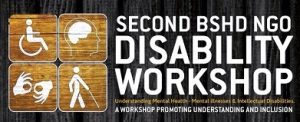Fighting a losing battle? A case study tracking ecosystem loss in nature-dependent Okavango Delta communities of Botswana
Abstract
Climate change has resulted in ecosystem, biodiversity and cultural heritage loss in numerous countries across the world. This case study therefore examined how unavoidable climate change loss and damage affects community-based tourism organisations in the Okavango Delta region of Botswana. Specifically, it focused on the effects of climate change incensed droughts that constantly envelope the sector. It further explored coping mechanisms employed by tourism operators and their community in an effort to deal with climate change impacts. To assess the non-economic loss and damage, the study conducted a content analysis of local newspaper articles published during Botswana’s 2018/2019 devastating drought season that saw the world’s largest inland delta partially dry up. To ensure rigor when addressing the research objectives, analysis and the eventual discussion of the public discourse was triangulated with key informants (purposively sampled) interview data. The strategy enhanced the overall findings of this case study. Data analysis was executed using qualitative methods such as content coding and thematic analysis. Overall, results reveal that loss of ecosystem and biodiversity, loss of quality of life and loss of cultural heritage to be the top three NELD impacts of greatest concern among Okavango Delta communities.
Keywords: non-economic loss and damage, nature-based tourism, climate change, development
To read the case-study, see the case-study compendium titled: Living in the shadow of loss and damage: uncovering non-economic impacts
Published by the International Institute for Environment and Development (IIED), our case study was one of the 14 case studies from climate-hit communities in Africa, Asia and the Pacific Islands.
This multi-author resource/compendium reveals the true impact of ‘non-economic loss and damage’.
Unlike the destruction of infrastructure or assets, these harms cannot be easily quantified and are often overlooked. But the consequences of losing traditional ways of living, cultural heritage and biodiversity cannot be ignored: they trigger the erosion of community cohesion and resilience and cause trauma, displacement and danger, especially for the most vulnerable people and groups.
Each author describes the climate hazards assailing a community, who is impacted and how, and current coping mechanisms. This unique resource is intended to support policymakers in understanding the nature and urgency of non-economic loss and damage, and to encourage practitioners to exchange knowledge and solutions from the community level.
Available at https://www.iied.org/21891iied
Conferences Participation:
Empowering Locally-Led Solutions: Practical Approaches to Addressing Loss and Damage
5th March 2024 at 17:00-18:30 (Dhaka time) | 11:00-12:30 (GMT)
Context
The Alliance for Locally Led Approaches for Transformative Action on Loss and Damage (ALL ACT on LnD) initiative responds to the pressing need for localized solutions to address the impacts of climate change in vulnerable developing countries. As climate change exacerbates, empowering locally led solutions is critical for several reasons. Firstly, local communities possess invaluable knowledge and insights into their unique challenges and vulnerabilities. By prioritizing their agency and expertise, interventions are more likely to be contextually appropriate and sustainable. Secondly, fostering local capacity strengthens resilience and fosters self-reliance, reducing dependency on external aid.
This session will showcase practical approaches and case studies demonstrating the effectiveness of locally led initiatives in addressing loss and damage, directly informing the shaping of the L&D Fund delivery. By sharing successful strategies and lessons learned from on-the-ground solutions, participants will gain insights into how local solutions can guide the allocation and management of the L&D Fund. These insights will help tailor the fund’s approach to empower communities, enabling them to mitigate and adapt to climate-induced challenges more effectively. Ultimately, this knowledge exchange aims to foster more resilient and sustainable futures by ensuring the L&D Fund supports initiatives that are both community-driven and contextually relevant, enhancing the overall impact of climate finance.
For more information on the conference visit: https://conference.gobeshona.net/


